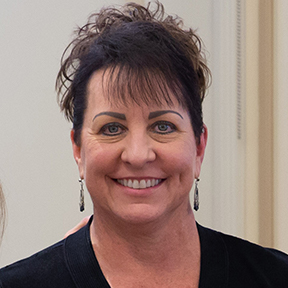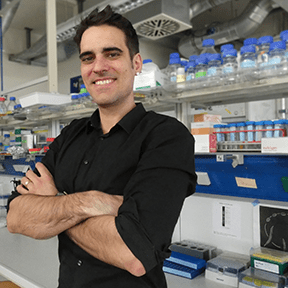Biology Graduate Programs
The School of Biological Sciences comprises research groups that span the broad spectrum of the life sciences. Reflecting this diversity, graduate training is provided through two focused graduate programs. Each program features its own research emphases, journal clubs, and requirements for advanced degrees. Multiple faculty members participate in more than one graduate program.
Many of our faculty members also participate in the interdepartmental programs in Molecular Biology, Biological Chemistry, and Neuroscience. These programs have their own admissions processes that are independent from the School of Biological Sciences. Please see the websites of these programs for details about their specific admissions requirements and application processes.
Message from the Graduate Program Director
 We are excited that you have chosen or are considering the School of Biological Sciences at the University of Utah to pursue your graduate studies in biology!
We are excited that you have chosen or are considering the School of Biological Sciences at the University of Utah to pursue your graduate studies in biology!
Our school provides an interactive and inclusive environment for you to pursue your passion for science. Our faculty comprises nearly 50 members whose research interests are diverse, and who serve as mentors for ~90 graduate students from around the world. Complementing outstanding faculty, staff and facilities, the school’s graduate program is highly interactive.
In performing your graduate studies in the program, you will be exposed to a wide range of biological investigation, from molecular structures and cells, to genetics, to organisms and ecosystems and their interactions. The school’s collegial environment, with many opportunities for interactions among research groups, has been a long-standing strength, and continues to be so today. Graduate school is a time to make lifelong friendships and connections as you grow as a scientist and mature as a person. It is a challenging and exciting time, one filled with opportunities to make new discoveries as you acquire important skills and disciplined logical thinking that will serve you for the rest of your career. Pursuing a post-baccalaureate degree can be a life changing and rewarding experience. Our lives were shaped and enriched by our times in graduate school, and we hope that your time in the School of Biological Sciences will be similarly influential in your life.
We wish you the best for your scientific explorations as you move through your graduate studies!
Colin Dale
Graduate Program Director
Frederick Adler
SBS Director
Graduate Student Coordinator
SBS Graduate Students are encouraged to meet early and often with the Graduate Program Coordinator.
Shannon Nielsen
shannon.nielsen@bioscience.utah.edu
(801) 581-5636
South Biology Building
257 South 1400 East, Rm. 223

Rotation Advisor for MCEB Students

Graduate Student Research Programs
Reflecting research diversity at the School, graduate training is provided through two focused graduate programs. Each features its own research emphases, journal clubs, and requirements for advanced degrees. Multiple faculty members participate in more than one graduate research program.
Latest News
Paying it Forward: Clarissa Henry
It’s generally not a good idea (or even allowed) to take biochemistry as your first biology class. But that’s exactly what Clarissa Henry BS’95 did as a freshman at the U. “[I]t was so great,” she says, “that I changed my major from Chinese to biology.” The class Henry took was a section taught by […]
Read MoreMetabarcoding for characterizing wild animal diets
DNA metabarcoding is the large-scale taxonomic identification of complex environmental samples via analysis of DNA sequences for short regions of one or a few genes. The technique is widely used to determine wild animal diets, but whether this technique provides accurate, quantitative measurements is still under debate. A team of SBS researchers set out to test […]
Read MoreSwing Out (Meiotic) Sister
March 20, 2021 – Sexual reproduction shuffles the parental genomes to generate new genetic combinations. To achieve that, the genome is subjected to numerous breaks, the repair of which involves two crucial decisions: repair pathway and repair template. In a new paper by SBS graduate students David E. Almanzar, Spencer G. Gordon and […]
Read MoreAustin Green
I began my research career in 2013 as an undergraduate in the Şekercioğlu Lab at the School of Biological Sciences. At the time, my research interests were very broad. All I knew for certain was that I wanted to do lots of fieldwork, so I started a small-scale project in Red Butte Canyon using camera […]
Read MoreINTERESTED IN STUDYING BIOLOGY?
Apply to a leading research institution, the School of Biological Sciences at the University of Utah.
GRADUATE STUDENTS APPLY NOW


